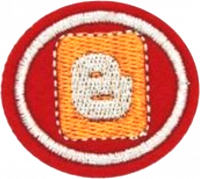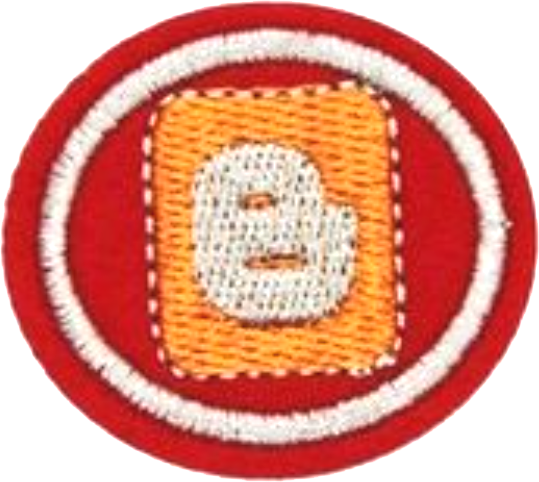|
|
| Line 81: |
Line 81: |
| | {{clear}} | | {{clear}} |
| | | | |
| − | <div lang="en" dir="ltr" class="mw-content-ltr">
| + | {{clear}} |
| − | The reason that blogs in included as a Vocational Honor is that some bloggers are able to create a good living from blogging. As you look into what makes successful bloggers successful a few things stand out:
| |
| − | </div>
| |
| | | | |
| − | <div lang="en" dir="ltr" class="mw-content-ltr">
| + | {{clear}} |
| − | *High quality content - accurate, helpful, and well written
| |
| − | *Focused topics - Your mom might want to read random stuff about your life but it is going to he hard to attract reader without becoming known for something specific.
| |
| − | *Interaction with readers and other bloggers
| |
| − | *Attractive clean design for the blog.
| |
| − | *A well thought out business plan for the blog
| |
| − | </div>
| |
| | | | |
| − | <div lang="en" dir="ltr" class="mw-content-ltr">
| + | {{clear}} |
| − | Profitable blogs use a combination of income streams including:
| |
| − | *Ad revenue (Google's Adsense being the most popular)
| |
| − | *Selling ad space directly (banners, sponsorships)
| |
| − | *Sponsored posts (be careful with this) where a business pays you to write about them. Bloggers that participate in websites that set up sponsored posts get paid almost nothing, write about stuff they don't understand and risk being blacklisted by Google. If you write a post about a good business you know, you are creating useful content.
| |
| − | *Affiliate income - putting trackable links into the blog that pay a reward when clicked (pay per click) or when someone buys (pay on performance)
| |
| − | *Direct sales of information products they create. The blogger can create an eBook on the same topic, but more in-depth or better organized and sell it to blog readers.
| |
| − | </div>
| |
| | | | |
| | <noinclude></noinclude> | | <noinclude></noinclude> |
| Line 120: |
Line 105: |
| | {{clear}} | | {{clear}} |
| | | | |
| − | <div lang="en" dir="ltr" class="mw-content-ltr">
| + | {{clear}} |
| − | ===Verifiability===
| |
| − | One of the great things about blogging is you can publish anything you want with little to no cost and no control by others. This is also one of the worst things about blogging, because anyone else can publish anything without any control by anyone else. People can and do publish all kinds of untrue things on the internet. Don't join the liars by repeating untrue or inappropriate things.
| |
| − | </div>
| |
| | | | |
| − | <div lang="en" dir="ltr" class="mw-content-ltr">
| + | {{clear}} |
| − | Bloggers need to understand the idea of Reliable Sources (RS). Reliable Sources include media that has editorial oversight. For example if you read something on the BBC or Washington Post websites you can be pretty sure the information is accurate and has been checked.
| |
| − | </div>
| |
| | | | |
| − | <div lang="en" dir="ltr" class="mw-content-ltr">
| + | {{clear}} |
| − | Official websites for individual and organizations are usually Reliable Sources for information about that individual or organization (unless there are independent RS that indicate the organization is not reliable). If the Adventist Church publishes something about the Adventist Church you can cite that the Adventist Church made the claim. However, watch out for government controlled press that may put out disinformation for political purposes, and watch out for individuals and organizations that publish lies and omissions to try and protect their reputation.
| |
| − | </div>
| |
| | | | |
| − | <div lang="en" dir="ltr" class="mw-content-ltr">
| + | {{clear}} |
| − | Review this Wikipedia article [[W:Identifying_reliable_sources |Identifying reliable sources]] because the guidance applies to blogging as well.
| |
| − | </div>
| |
| | | | |
| − | <div lang="en" dir="ltr" class="mw-content-ltr">
| + | {{clear}} |
| − | ===Christian standards===
| |
| − | You are responsible for the material you publish. Always filter what you publish against Christian values and truthfulness. Is it verifiable? Whould you be embarrassed if your mother or pastor saw what you publish? Restricting what you publish to quality material will also prevent problems later. Anyone that runs for office or applies for a job is facing increasing scrutiny of what they wrote or said online in the past. Even off color jokes can come back to haunt you later.
| |
| − | </div>
| |
| | | | |
| | <noinclude></noinclude> | | <noinclude></noinclude> |



